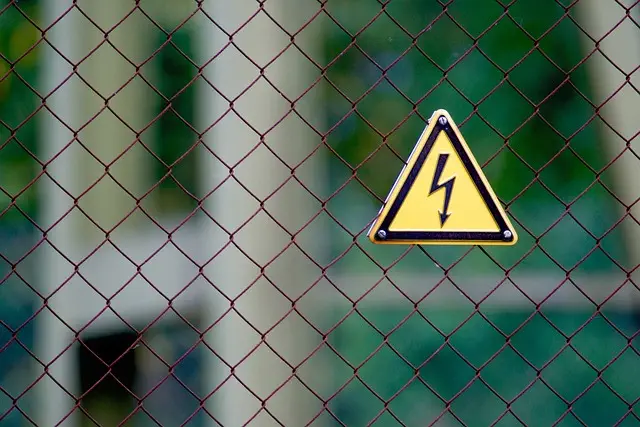Kratom, derived from Mitragyna speciosa, has gained popularity as a natural alternative to prescription stimulants for enhancing mental focus and clarity. Its active compounds interact with opioid receptors in the brain, modulating pain perception and influencing neurotransmitters like dopamine and serotonin. While not explicitly prohibited, the U.S. Army's strict substance use policies allow them to test for substances that could impair performance or pose health risks. The military's consideration of kratom reflects a broader debate about its benefits versus potential adverse effects, especially with mixed research outcomes. Understanding army drug testing policies and responsible usage is crucial for service members considering kratom.
Kratom, derived from the Southeast Asian plant Mitragyna speciosa, has gained popularity as a natural alternative for enhancing mental focus and clarity. This article delves into the science behind kratom’s effects on cognitive function, explores its potential benefits and risks, and examines the U.S. Army’s policies regarding its use. Understanding these factors is crucial when considering kratom for improved mental focus, especially in light of recent discussions about its prevalence among military personnel and whether the U.S. Army tests for it.
- Understanding Kratom and Its Effects on Mental Focus
- Does the U.S. Army Test for Kratom? A Look at Policy and Use
- Balancing Benefits and Risks: Exploring Safe Kratom Usage for Enhanced Mental Clarity
Understanding Kratom and Its Effects on Mental Focus

Kratom, a natural herb derived from the Mitragyna speciosa tree, has gained significant attention in recent years for its potential to enhance mental focus and clarity. Often used by folks seeking an alternative to prescription stimulants, kratom’s unique blend of alkaloids can produce energizing and mood-boosting effects without the jitters or crash associated with some synthetic options. The primary active compounds in kratom, mitragynine and 7-hydroxymitragynine, interact with opioid receptors in the brain, modulating pain perception and creating a calm yet alert sensation.
When it comes to understanding how kratom affects mental focus, research suggests that these alkaloids can cross the blood-brain barrier, influencing neurotransmitters like dopamine and serotonin. This interaction can lead to improved concentration, heightened cognitive function, and better decision-making abilities. Interestingly, even military and law enforcement agencies have started exploring the use of kratom for its potential benefits in enhancing operational readiness – does army test for kratom has become a relevant query in these circles as they seek natural alternatives for maintaining mental acuity under high-stress conditions.
Does the U.S. Army Test for Kratom? A Look at Policy and Use

The U.S. Army, like many other branches of the military globally, has strict policies regarding substance use to ensure optimal performance and safety among its members. When it comes to kratom, a natural herb known for its potential cognitive benefits, including improved mental focus and clarity, there’s been speculation about its prevalence and testing within the ranks. However, definitive answers are not readily available due to evolving policies and the subjective nature of drug testing.
While some sources suggest that kratom is not explicitly listed as a prohibited substance in U.S. Army regulations, the military does have broad authority to test for substances that could impair performance or pose health risks. Given the increasing popularity of kratom for its perceived mental focus enhancement, it’s plausible that the Army may incorporate it into their drug testing repertoire, especially if there are reports of its use among service members. Understanding the nuances of these policies is crucial for anyone considering using kratom, as non-compliance can have significant consequences.
Balancing Benefits and Risks: Exploring Safe Kratom Usage for Enhanced Mental Clarity

Kratom, derived from the mitragyna speciosa plant, has gained attention for its potential to enhance mental focus and clarity. While many users report positive effects on cognition and concentration, it’s crucial to approach this natural supplement with a balanced perspective. Just like any substance, kratom comes with risks that must be considered before incorporating it into your routine, especially for those in high-risk professions like the military.
Does army test for kratom? This is a relevant question as military personnel often face stringent drug screening to ensure their mental acuity and safety during missions. The current research on kratom’s impact on cognitive function is mixed, with some studies suggesting improvements in focus and others raising concerns about potential adverse effects. Baling the benefits of enhanced mental clarity against the risks involves responsible usage, including adhering to recommended doses, understanding individual tolerance, and consulting healthcare professionals, especially if you’re subject to rigorous testing like those in the military.
Kratom has emerged as a popular natural supplement for enhancing mental focus and clarity, with many users praising its calming yet energizing effects. However, it’s essential to understand that while some branches of the military, such as the U.S. Army, test for kratom use due to concerns over potential performance impacts, proper usage involves striking a balance between benefits and risks. Always prioritize safe practices and consult with healthcare professionals before incorporating kratom into your routine, especially if you’re subject to drug testing or have underlying health conditions.






